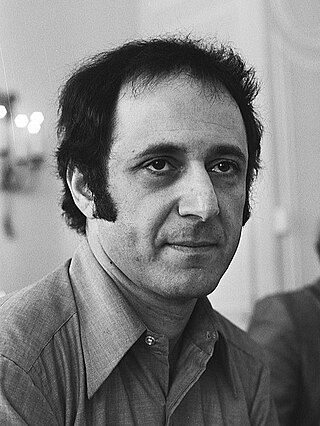
Stephen Michael Reich is an American composer best known as a pioneer of minimal music in the mid to late 1960s. Reich's work is marked by its use of repetitive figures, slow harmonic rhythm, and canons. Reich describes this concept in his essay, "Music as a Gradual Process", by stating, "I am interested in perceptible processes. I want to be able to hear the process happening throughout the sounding music." For example, his early works experiment with phase shifting, in which one or more repeated phrases plays slower or faster than the others, causing it to go "out of phase." This creates new musical patterns in a perceptible flow.
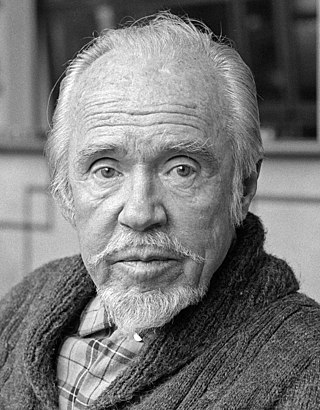
Samuel Conlon Nancarrow was an American-Mexican composer who lived and worked in Mexico for most of his life. Nancarrow is best remembered for his Studies for Player Piano, being one of the first composers to use auto-playing musical instruments, realizing their potential to play far beyond human performance ability. He lived most of his life in relative isolation and did not become widely known until the 1980s.

Milton Byron Babbitt was an American composer, music theorist, mathematician, and teacher. He was a Pulitzer Prize and MacArthur Fellowship recipient, recognized for his serial and electronic music.

André George Previn was a German-American pianist, composer, and conductor. His career had three major genres: Hollywood films, jazz, and classical music. In each he achieved success, and the latter two were part of his life until the end. In movies, he arranged and composed music. In jazz, he was a celebrated trio pianist, a piano-accompanist to singers of standards, and pianist-interpreter of songs from the "Great American Songbook". In classical music, he also performed as a pianist but gained television fame as a conductor, and during his last thirty years created his legacy as a composer of art music.

Yusef Abdul Lateef was an American jazz multi-instrumentalist, composer, and prominent figure among the Ahmadiyya Community in the United States.
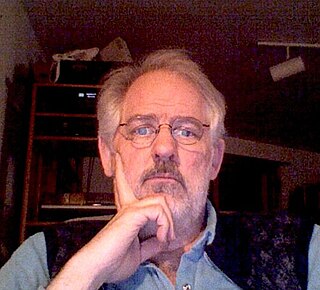
Kyle Eugene Gann is an American composer, professor of music, critic, analyst, and musicologist who has worked primarily in the New York City area. As a music critic for The Village Voice and other publications, he has supported progressive music, including such "downtown" movements as postminimalism and totalism.
The term "M-Base" is used in several ways. In the 1980s, a loose collective of young African American musicians including Steve Coleman, Graham Haynes, Cassandra Wilson, Geri Allen, Robin Eubanks, and Greg Osby emerged in Brooklyn with a new sound and specific ideas about creative expression. Using a term coined by Steve Coleman, they called these ideas "M-Base-concept" and critics have used this term to categorize this scene's music as a jazz style. But Coleman stressed "M-Base" doesn't denote a musical style but a way of thinking about creating music. Coleman also refuses the word "jazz" as a label for his music and the music tradition represented by musicians like John Coltrane, Charlie Parker, Louis Armstrong, etc. However, the musicians of the M-Base movement, which also included dancers and poets, strived for common creative musical languages, so their early recordings show many similarities reflecting their common ideas, the experiences of working together, and their similar cultural background. To label this kind of music, jazz critics have established the word "M-Base" as a jazz style for lack of a better term, distorting its original meaning.

Sir Karl William Pamp Jenkins,, HonFLSW is a Welsh multi-instrumentalist and composer. His best known works include the song "Adiemus", Palladio (1995), The Armed Man (2000), his Requiem (2005) and his Stabat Mater (2008).

Sketches of Spain is a studio album by the jazz trumpeter and composer Miles Davis. It was released on 18 July 1960 through Columbia Records. The recording took place between November 1959 and March 1960 at the Columbia 30th Street Studio in New York City. An extended version of the second movement of Joaquín Rodrigo's Concierto de Aranjuez (1939) is included, as well as a piece called "Will o' the Wisp", from Manuel de Falla's ballet El amor brujo (1914–1915). Sketches of Spain is regarded as an exemplary recording of third stream, a musical fusion of jazz, European classical, and styles from world music.
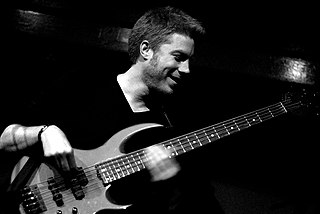
Kyle Eastwood is an American jazz bassist and film composer. He studied film at the University of Southern California for two years before embarking on a music career. After becoming a session player in the early 1990s and leading his own quartet, he released his first solo album, From There to Here, in 1998. His album The View From Here was released in 2013 by Jazz Village. In addition to his solo albums, Eastwood has composed music for nine of his father's, Clint Eastwood, films. Eastwood plays fretted and fretless electric bass guitar and double bass.
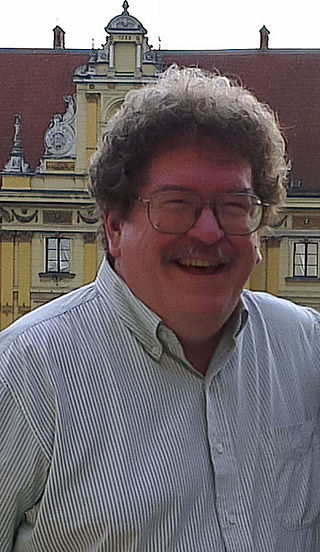
Eric Ewazen is an American composer and teacher.
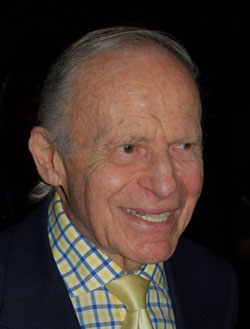
Ervin Drake was an American songwriter whose works include such American Songbook standards as "I Believe" and "It Was a Very Good Year". He wrote in a variety of styles and his work has been recorded by musicians around the world. In 1983, he was inducted into the Songwriters Hall of Fame.

Krzesimir Marcin Dębski is a Polish composer, conductor and jazz violinist. His music career as a musician has been that of a performer as well as composer of classical music, opera, television and feature films.
Makanda Ken McIntyre was an American jazz musician, composer and educator. In addition to his primary instrument, the alto saxophone, he played flute, bass clarinet, oboe, bassoon, double bass, drums, and piano.
Malaysian contemporary music is an artistic phenomenon within Malaysia that has its roots in the 1980s with pioneer composers like Valerie Ross. However, little information about that period exists in written sources. The genre gained visibility and momentum only in the new millennium due to the internet phenomenon, and in 2002 in particular, when the Malaysian Philharmonic Orchestra (MPO) programmed several works by Malaysian composers, namely Chong Kee Yong's Echoed Dream (2002), Sunetra Fernando's 'Wayang' (2002) and Tazul Izan Tajuddin's Sebuah Tenunan III (2003). They represent the first local commissions by a professional symphony orchestra in the country. Interest in orchestral music by Malaysian composers grew and when the orchestra held its first Forum For Malaysian Composers in 2003 the event was a triumph for the local music scene.
Third stream is a music genre that is a fusion of jazz and classical music. The term was coined in 1957 by composer Gunther Schuller in a lecture at Brandeis University. There are many ways to define third-stream music. It could refer to a group of jazz musicians playing solely, or a jazz soloist performing with a symphony orchestra, as long as the musicians are able to interpret and play jazz music. Improvisation is generally seen as a vital component of third stream. In third-stream music, composers incorporated elements of classical music, such as the use of jazz instruments and classical music forms, into their jazz compositions. The fusion of jazz and classical music is also viewed as "born out of a reciprocal interest: the interest of the classical community in the developments in jazz music and the interest of the jazz community in the advances of classical music." The innovative idea of fusing jazz and classical music pushed the boundaries of traditional classical music and introduced a new genre that blends the two styles into a unique hybrid form.
Elliott Miles McKinley is an American composer, improviser, and teacher. He is currently Associate Professor of Music Composition and Theory at Roger Williams University in Rhode Island, and director of the Alba Music Festival Composition Program in Italy. His father is the late American composer and jazz pianist William Thomas McKinley, who gave Elliott the middle name Miles in honor of Miles Davis.

George Heussenstamm was an American composer. His most well-known works include jazz-classical chamber styles, such as Etudes (7) for oboe, clarinet & bassoon, Op. 77 (1964), Alchemy for solo oboe and tape, Op. 60 (1976), and Ensembles, for brass quintet (1976). Recordings of his compositions include Woodwind Treasures by the West Wind Quintet and Alchemy: American Works for Oboe and English Horn CD by Mark Hill, and others.
PC Muñoz is an American recording artist, drummer, producer, and writer based in the San Francisco Bay Area, primarily working in the contemporary classical, funk, pop, and avant-garde jazz genres.
Joseph Franklin is a composer, an artist-administrator, and writer. Known as the co-founder and long-time executive-artistic director of the Relache Ensemble, Inc., he has produced concerts and concert series’, international tours, residency programs, recordings, radio programs, and media events. He has composed musical works for mixed instrumental/vocal ensembles, film, video, theater, and dance and is the author of Settling Scores: A Life in the Margins of American Music, published by Sunstone Press. Joseph is the founder and president of Metadesign Associates, a consulting and project development entity.












